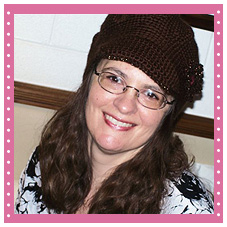While I understand self-publishing may be the perfect choice for some writers, it bothers me to think they may be choosing this option simply because they feel there are no alternatives.
Maybe they've been told their chance of being traditionally published is one in a million, or that it's just too hard. So why bother? Well, I'm here to show you the other side of the equation. To assure you that being traditionally published IS an option, and to share a few of the many advantages.
Everyday, all year, agents are being found, editors are accepting manuscripts, and deals—many involving debut authors—are being made.
So what's required?
A measure of talent, the willingness to work on your craft until your writing is truly of publishable quality, and then an enormous dose of perseverance.
I'm not going to delve into the craft of writing in this post, because there's an abundance of information in print and online. However, if you're not willing to bring your work up to the highest quality possible, you shouldn't be publishing, period.
What I can tell you about is perseverance. It took eight years to find the right agent and sign a deal with Houghton Mifflin Harcourt for my debut children's novel, A Smidgen of Sky. (Nov. 2012) So was all the work worth it? Absolutely!
The biggest benefit of being traditionally published is that the publishing house will pay YOU for your book, instead of you paying to have it published. An advance often involves several thousand dollars even if you are a debut, or first time author. Though most marketing and publicity efforts fall on the author nowadays, reputable publishing houses carry a lot of clout. They will support you in many ways.
A good editor will offer revision notes, proof read, fact check, copy edit, line edit, and do countless other things to elevate your book from good to great. He or she will also guide, direct, and champion you as one of their authors. The old adage about being overworked and underpaid surely fits most editors, and a good one is a true friend and ally not to be taken for granted.
How do you find an editor like that? Your chances go up exponentially if you have an agent to help you. But wait, you say, do I really need an agent? Not in every case. There are still some publishing houses, especially small ones, which accept unsolicited manuscripts. Nevertheless, more and more are closing their doors to all but agented submissions.
Frankly, there are so many advantages to having an agent I'm not sure why anyone would want to go it alone. Here are just a few:
1. Agents stay on top of the constantly changing publishing industry.
2. They know what individual editors like and are searching for.
3. Agents keep your manuscript out of the infamous slush pile and get it read much faster.
4. They believe in your work and "get" what you're trying to say.
5. They offer encouragement when you feel like giving up.
6. They negotiate the best contract, usually a significant improvement over the boilerplate contract offered to a writer without representation.
It's hard to describe the enormous satisfaction that comes from being able to say, "I did it. Someone considered my work good enough to pay me for it." So before automatically deciding to self-publish, at least give some serious thought to being traditionally published. And don't let anyone tell you your chances are one in a million—the odds are far better than that!
About the Author:
 Dianna Winget writes both fiction and non-fiction for young readers. Her debut novel, A Smidgen of Sky, revolves around ten year old Piper Lee DeLuna, a young girl struggling with the idea of her mother’s remarriage, and is loosely based on Dianna’s own experiences with the challenges of step-family life. The book was chosen as an IndieBound Fall 2012 ABC New Voices Pick. When she’s not reading or writing, Dianna enjoys working in her garden, taking long walks, and playing with her two canine buddies. She lives with her husband and daughter in the beautiful mountains of North Idaho.
Dianna Winget writes both fiction and non-fiction for young readers. Her debut novel, A Smidgen of Sky, revolves around ten year old Piper Lee DeLuna, a young girl struggling with the idea of her mother’s remarriage, and is loosely based on Dianna’s own experiences with the challenges of step-family life. The book was chosen as an IndieBound Fall 2012 ABC New Voices Pick. When she’s not reading or writing, Dianna enjoys working in her garden, taking long walks, and playing with her two canine buddies. She lives with her husband and daughter in the beautiful mountains of North Idaho.


No comments:
Post a Comment